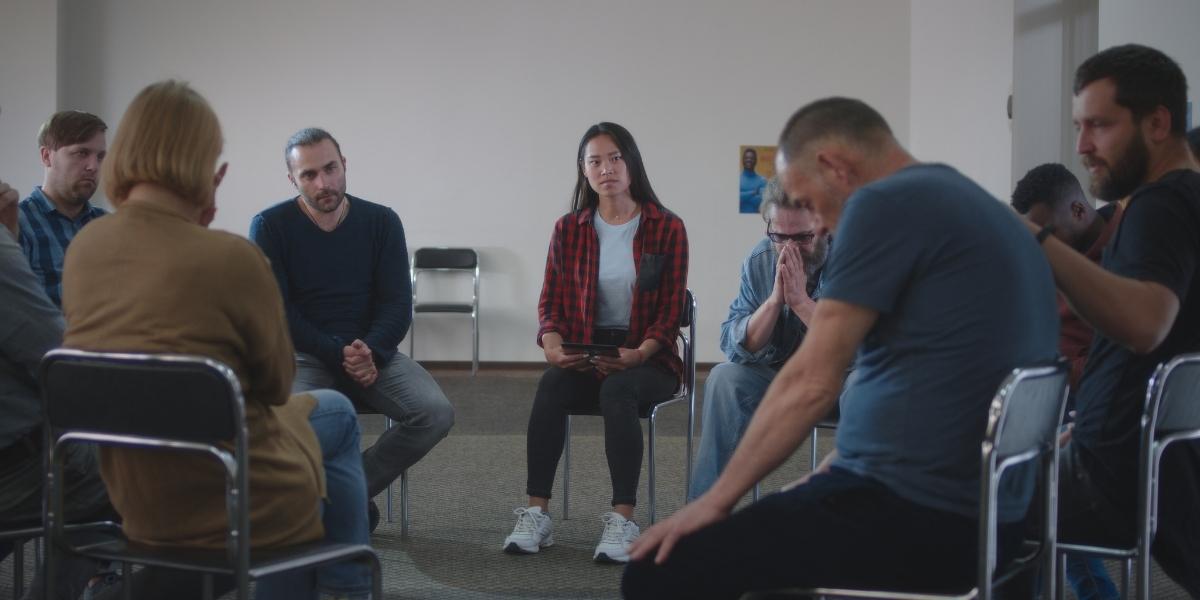12 Step Facilitation


What Is 12-Step Facilitation (TSF)?
Twelve-step facilitation therapy (TSF) is a structured approach to overcoming substance abuse and maintaining a life free from drugs and alcohol. TSF is the basis for Alcoholics Anonymous (AA) and Narcotics Anonymous (NA).
12-step facilitation therapy recognizes that addiction is a chronic disease that requires active engagement to sustain recovery and overcome substance use disorders.
What Are the 12 Steps?
The 12 steps are a list of guiding principles that aid recovery from drug and alcohol addiction.
The basis of the 12-step recovery model are:
Step 1: Admitting powerlessness over drug abuse and addiction
Step 2: Believing in a higher power that can help restore sanity and order
Step 3: Deciding to turn control over and life over to the higher power
Step 4: Taking an honest and fearless moral inventory
Step 5: Admitting to the higher power, ourselves, and another human being, the wrongs committed
Step 6: Being ready for the higher power to correct our character flaws and shortcomings
Step 7: Humbly ask the higher power to remove our shortcomings
Step 8: Making a list of wrongs we have done to other people and being willing to correct them
Step 9: Reaching out to the people we’ve wronged and making direct amends unless contacting them would cause them or others more harm
Step 10: Continuing taking moral inventory and admitting when we are wrong
Step 11: Seeking connection, enlightenment, knowledge, and a greater understanding of the higher power through prayer and meditation
Step 12: Experiencing an awakening from these steps and sharing the message with drug and alcohol addicts
What Is the 12-Step Facilitation Model?
The 12-step facilitation model is a structured, active engagement approach based on four core concepts to increase the likelihood that people with substance use disorder will become involved with 12-step groups and build connections that help them maintain long-term recovery.
The 12-step facilitation model focuses on sayings such as “one day at a time” and “it works if you work it,” meaning that as long as you are engaged and trying, you will succeed.
There is no timeline to work the 12 steps; some people struggle and take more time than others. Some people need to re-work the steps several times until they feel they have accomplished the goal of that step. Recovery is a marathon, not a sprint.

What Are the Four Core Concepts of 12-Step Facilitation?
12-step facilitation has four core concepts: assessment, acceptance, surrender, and active engagement.
Assessment – Evaluating the history and severity of substance abuse, substance tolerance, mental health state, motivation for entering treatment and staying sober, and previous addiction treatment programs attempted or completed
Acceptance – Coming to terms with the fact that addiction is a chronic disease that makes life unmanageable and causes a person to be powerless in the face of drugs and alcohol, and total abstinence is the only way
Surrender – After realizing the lack of control, having faith and trust in a higher power to restore willpower and strength to help sustain recovery, and accepting the support and guidance of others who have walked the same path and done their step work
Active engagement – Being actively involved in 12-step meetings, obtaining a sponsor, sponsoring others when you are ready and established in your recovery, and keeping up with self-care and other therapies or treatment programs that help sustain recovery
What Is the History of the 12 Steps?
In 1935, Bill Wilson discovered his higher power while detoxing at a rehab center in Manhattan. He combined his knowledge of philosophy, the Bible, and the Bible’s structure, to outline twelve steps for staying sober; shortly after, he met Dr. Robert Holbrook Smith, who was struggling with sobriety.
Together the two, affectionately known as Bill W. and Dr. Bob, went on to compile the “Big Book” that is the basis for Alcoholics Anonymous (AA), Narcotics Anonymous (NA), and countless other specialized 12-step recovery programs.
The 12-step program founders believed that recovery should be possible and accessible for everyone. Today, free AA or NA meetings are available throughout the United States to make it easy for people to attend 12-step meetings and stay involved in their recovery.
Although religious beliefs inspired Bill W. and Dr. Bob, you do not have to be a religious person for the 12 steps to work for you. Spirituality and religious beliefs are personal and unique, much like each person’s recovery journey. Twelve-step facilitation welcomes people from all walks of life and faiths.

Project MATCH
The National Institute on Alcohol Abuse and Alcoholism (NIAAA) sponsored Project MATCH, a long-term, full-scale clinical study that tracks treatment approaches and long-term recovery rates. MATCH stands for Matching Alcoholism Treatments to Client Heterogeneity or determining which treatment benefits different people the most.
Psychotherapists focused on three types of treatments:
- Twelve-step Facilitation Therapy (TSF) – Learning and working the 12-steps
- Cognitive Behavioral Therapy (CBT) – Examining and changing negative thought patterns and habits
- Motivational Enhancement Therapy (MET) – Providing positive reinforcement for positive behaviors and changes
Researchers followed up with participants at 3, 6, 9, 12, and 15 months to check their recovery progress and compare it to other participants receiving comparable addiction treatment programs.
Overall, all participants decreased their use of drugs and alcohol; however, patients who received 12-step facilitation therapy were more likely to maintain total abstinence the following year, which is when most relapses occur.
Benefits of 12-Step Facilitation Therapy
TSF therapy has countless benefits, including forming social connections and bonds with others who understand your struggle. Developing a support network of like-minded individuals helps break down the stigma of addiction and fosters a sense of community and belonging.
At White Oak Recovery Center, we combine 12-step facilitation therapy with other evidence-based treatments and therapies to ensure we treat every aspect of your addiction and set our residents up for lasting success in a life rooted in recovery.
Reach out to our compassionate treatment specialists today for a free and confidential consultation.

Am I covered for addiction treatment?
Your insurance may cover treatment. Call now for an entirely free and confidential assessment. Recovery starts with a phone call.

- Nowinski, Joseph, et al. “Twelve Step Facilitation Therapy Manual. A Clinical Research Guide for Therapists Treating Individuals With Alcohol Abuse and Dependence.” National Institute on Alcohol Abuse and Alcoholism, Apr. 1999.
- Giard, Julienne. “Twelve Step Facilitation.” Connecticut State Department of Mental Health and Addiction Services, Jan. 2022.
- “12-Step Facilitation Therapy (Alcohol, Stimulants, Opiates).” National Institute on Drug Abuse, Jun. 2020.
- “Twelve-Step Facilitation (TSF).” Recovery Research Institute, March 2019.
- Bogenschutz, Michael P et al. “12-step Facilitation for the Dually Diagnosed: a Randomized Clinical Trial.” Journal of Substance Abuse Treatment Vol. 46, Dec. 2013.
- “NIAAA Reports MATCH Main Findings.” National Institute on Alcohol Abuse and Alcoholism, Dec. 1996.
Medical Disclaimer:







